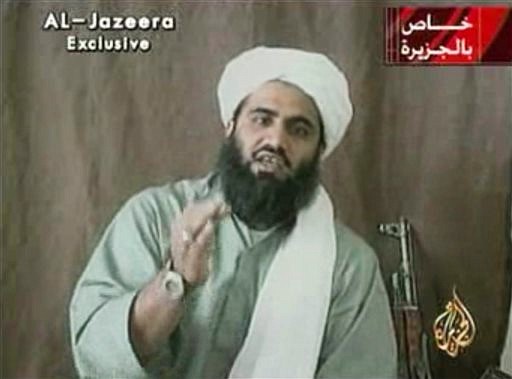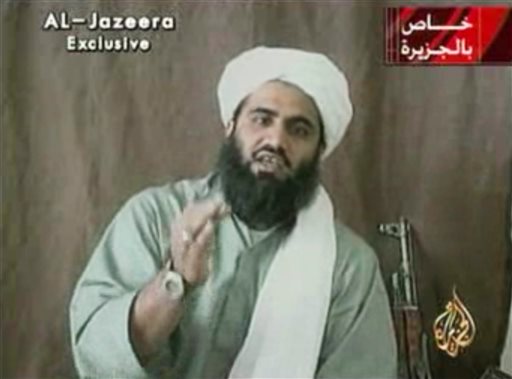NEW YORK - There is more than enough proof that would allow a jury to decide to convict Osama bin Laden's son-in-law and al-Qaida spokesman of conspiring to kill Americans, a judge said Friday as he turned down a defense request to dismiss the case.
"The government's evidence in (the count) of the conspiracy to murder Americans is dramatically more than merely sufficient," U.S. District Judge Lewis A. Kaplan said, adding that he also saw evidence as "more than sufficient to warrant a conviction" on other charges concerning providing material support to terrorists.
The verdict "is ultimately up to the jury, not me," he noted. "But it is sufficient to permit the jury to convict on all counts."
Prosecutors rested their case Friday in the trial of Sulaiman Abu Ghaith, the highest-level al-Qaida figure to be tried in the U.S. since the Sept. 11 attacks. The defense case is due to start Monday.
Prosecutors say Abu Ghaith was part of al-Qaida's deadly plotting in his role as spokesman in fiery videos and interviews after 9/11 and as a motivational speaker at the group's training camps in Afghanistan in the summer before the attacks. Prosecutors have built their case partly on his own words, including a declaration on Sept. 12, 2001, that "the storm of airplanes will not abate."
Abu Ghaith's lawyers have said the Kuwait-born imam made inflammatory remarks but didn't conspire to carry out terrorism. He said in a statement to authorities after his arrest last year that as 9/11 approached, he knew nothing of any specific plan to attack the U.S., though he'd heard "something big was going to happen."
"The government has not met its burden (of proof), and the case should be dismissed," one of his lawyers, Zoe Dolan, said Friday in urging Kaplan to toss out the case.
Defense lawyers have sought information from professed Sept. 11 mastermind Khalid Sheik Mohammed, and they're likely to revisit Monday whether they can use it at the trial. They recently received answers to written questions they sent to Mohammed in a detention facility in Guantanamo Bay, Cuba, but they would need Kaplan's OK to introduce the information.
The defense has suggested Mohammed could help rebut the government's claim that Abu Ghaith must have known in advance of al-Qaida's so-called shoe bomb airplane plots, including Richard Reid's attempt to carry one out in December 2001.

